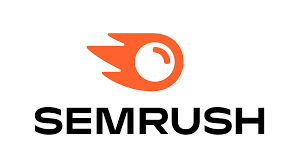This Article has been revised, edited and added to, by Poulomi Chakraborty.
- What are Meta Titles and Descriptions?
- Why are They Important?
- Crafting The Perfect Meta Title
- Crafting a Compelling Meta Description
- Advanced Techniques for Optimization
- Avoiding Common Pitfalls
- Best Tools to Assist in Crafting Meta Tags
- Conclusion: The Art and Science of Meta Tags
The internet is an expansive digital space, but despite its vastness, your website’s first impression often comes down to a mere handful of words. Enter the meta title and description. These small, yet powerful, text snippets can make or break your site’s click-through rates, user engagement, and SEO rankings. Crafting them well is both an art and a science.
What are Meta Titles and Descriptions?

The Significance of Meta Titles in Digital Visibility
Meta titles hold unparalleled importance in the digital ecosystem. They are not just headers; they are the first handshake between your website and potential visitors. For a startup, this handshake must be firm and memorable. The meta title is your opportunity to make a strong first impression, encapsulate your brand’s value proposition, and directly communicate to search engines what your webpage is about.
Strategic use of meta titles can lead to higher search engine rankings, which in turn increases visibility among potential customers. It’s essential to craft meta titles that are both SEO-friendly and appealing to human readers.
Crafting Meta Descriptions That Convert
Meta descriptions, while not a direct ranking factor, play a pivotal role in conversion and click-through rates. Think of the meta description as your elevator pitch to potential customers. Within a concise space, you need to convey the essence of your webpage, the unique value it offers, and why it’s worth exploring further.
For startups, where every visitor can be a potential early adopter or advocate, crafting meta descriptions that resonate with your target audience can significantly impact your site’s performance and user engagement.
Strategic Approaches to Meta Titles and Descriptions
Crafting compelling meta titles and descriptions is an art that requires a deep understanding of your audience, clarity in your value proposition, and an eye for SEO. Here are some strategic approaches:
Aligning with User Intent
Understanding user intent is crucial. Your meta titles and descriptions should align with what your potential customers are searching for. Conduct thorough keyword research to identify the terms and phrases your target audience uses.
However, go beyond just incorporating keywords. Analyze the intent behind these searches—whether users are looking for information, making a purchase, or comparing products—and tailor your meta tags to meet these needs.
Emphasizing Brand Value and Differentiation
Startups often operate in competitive markets, making differentiation vital. Use your meta titles and descriptions to highlight what sets your product or service apart. This could be your unique selling proposition (USP), a special offer, or a particular feature that addresses a common pain point more effectively than your competitors. The goal is to communicate your brand’s value and how it aligns with the user‘s needs, compelling them to click through to your site.
Optimizing for Clarity and Appeal
While SEO is important, clarity and appeal to the reader should not be compromised. Avoid jargon and ensure that your meta tags are easily understandable. Use language that speaks to your audience’s desires and concerns. A clear, benefits-focused meta description can make the difference between a user clicking on your site or a competitor’s.
Leveraging Emotional Triggers
Humans are emotional beings, and even in the digital space, emotions drive actions. Incorporating emotional triggers into your meta titles and descriptions can significantly enhance their effectiveness. Whether it’s invoking curiosity, excitement, or even fear of missing out (FOMO), strategically using emotional triggers can increase engagement and click-through rates.
Continuous Testing and Optimization
The digital landscape is constantly evolving, and what works today may not work tomorrow. Implement a regime of continuous A/B testing for your meta titles and descriptions. Use tools like Google Search Console to track performance and refine your approach based on real data. Testing different versions can reveal insights into what resonates best with your audience, allowing you to optimize for both search engines and human engagement.
In the expansive digital marketplace, meta titles and descriptions are your storefront. For startups, where every interaction counts, mastering the craft of creating compelling and SEO-friendly meta tags is not just beneficial—it’s essential. By understanding your audience, highlighting your brand’s unique value, and continuously refining your approach based on data, you can leverage meta titles and descriptions as powerful tools to attract, engage, and convert potential customers.
Why are They Important?

Driving Digital Discoverability
In the vastness of the digital landscape, discoverability is the cornerstone of a startup’s success. Meta titles and descriptions play a pivotal role in this arena, acting as the bridge between your content and the potential audience searching for it. Search engines use these snippets to index and rank pages, making them integral to your website’s visibility.
A well-crafted meta title and description ensure that your content is not just found but also understood by search engines, boosting your chances of appearing in relevant searches. For startups, where every bit of exposure counts, optimizing these elements can significantly impact your digital footprint.
Enhancing User Engagement and Conversion Rates
Beyond SEO, meta titles and descriptions directly influence user engagement and conversion rates. These snippets are often the first point of contact between your website and potential customers. A compelling meta title grabs attention, while a persuasive meta description encourages clicks, serving as a de facto advertisement for your webpage.
This initial engagement is crucial, especially for startups looking to establish a customer base and generate leads. Crafting meta tags that resonate with your target audience can lead to higher click-through rates (CTRs), driving more traffic to your site and ultimately, increasing conversion opportunities.
Building Brand Presence and Authority
For startups, building a strong brand presence and authority in your niche is essential. Meta titles and descriptions offer a unique opportunity to convey your brand’s voice, values, and expertise.
By consistently presenting your brand’s unique selling propositions and value in these snippets, you reinforce your brand identity and message across the digital ecosystem. This consistent reinforcement not only aids in brand recall but also establishes your startup as a credible and authoritative source in your field, fostering trust with your audience.
Navigating the Competitive Digital Landscape
The digital marketplace is fiercely competitive, with countless businesses vying for the attention of a finite audience. In this context, meta titles and descriptions are critical tools for differentiation. By strategically crafting these elements to highlight what sets your startup apart, you can capture the interest of potential customers even before they visit your website.
Whether it’s showcasing a unique feature, a special offer, or a compelling value proposition, effectively utilizing meta tags can give you a competitive edge, ensuring that your content stands out in a crowded search engine results page (SERP).
Optimizing for Mobile and Voice Search
With the increasing prevalence of mobile devices and the rise of voice search, optimizing meta titles and descriptions for these platforms is becoming increasingly important. Mobile users, often searching on-the-go, require concise, clear, and actionable information.
Similarly, voice search queries tend to be more conversational and longer than traditional text searches. Adapting your meta tags to cater to these trends not only improves your visibility but also enhances user experience across different devices and search modes. For startups, this means an opportunity to tap into a broader audience base and meet potential customers where they are.
Fostering Long-Term SEO Success
Meta titles and descriptions, while seemingly small components of your overall SEO strategy, have long-term implications for your site’s search engine performance. They are among the first elements that search engines crawl and index, making them foundational to your SEO efforts.
Regularly updating and optimizing these tags in response to changing search algorithms, user behavior, and competitive landscapes ensures that your site remains relevant and visible. For startups, this ongoing optimization process is crucial for sustaining and growing digital presence over time.
Incorporating strategic, well-crafted meta titles and descriptions into your digital marketing strategy is not just about improving SEO rankings; it’s about creating meaningful engagements, building brand authority, and navigating the competitive digital landscape effectively. For startup founders, understanding and leveraging the power of these elements can be a game-changer, driving visibility, engagement, and ultimately, business growth in the digital age.
Crafting The Perfect Meta Title

The Foundation of Search Engine Visibility
The meta title stands as the cornerstone of search engine visibility. It’s the first element that catches both the user’s and the search engine’s eye. For startups aiming to carve out a space in the digital realm, understanding the meta title’s impact on search engine optimization (SEO) is paramount.
This understanding begins with recognizing the meta title as more than just a technical SEO element; it’s a strategic tool that can influence your website’s click-through rates, user engagement, and overall online presence.
Balancing SEO with User Engagement
The dual nature of the meta title requires a delicate balance between optimizing for search engines and appealing to potential visitors. The primary challenge lies in crafting a title that serves both masters effectively. This balance involves integrating targeted keywords in a manner that feels natural and engaging. Startups must prioritize this balance to ensure their digital content is not only discoverable but also compelling enough to encourage clicks.
The Strategy Behind Keyword Placement
The strategic placement of keywords within the meta title cannot be overstated. Placing the primary keyword towards the beginning of the title maximizes visibility and relevance in search engine algorithms. However, this strategy must be implemented with finesse.
The title should not merely be a string of keywords but a coherent and attractive statement that offers clear value to the potential reader. For startups, the choice and placement of keywords should reflect the core offerings and the unique value proposition of the business.
Crafting Titles for a Global Audience
In today’s globalized digital landscape, startups must also consider the broader, international audience. Crafting meta titles with a global perspective involves understanding the cultural nuances and search behaviors of different target markets.
This may involve creating localized versions of your site with meta titles tailored to each specific audience, ensuring relevance and resonance across cultural boundaries. Such an approach not only enhances global reach but also contributes to a more personalized user experience.
Emphasizing Branding in Meta Titles
Incorporating your brand name in the meta title serves a dual purpose. It reinforces brand recognition and signals trustworthiness to potential visitors. For startups, where brand building is crucial, including the brand name in the meta title can be a strategic move. However, the placement of the brand name should not detract from the clarity and appeal of the main message. Ideally, it should complement the value proposition conveyed in the title.
Leveraging Unique Selling Propositions
Startups often operate in niches or offer unique innovations. The meta title presents an opportunity to highlight these unique selling propositions (USPs). By succinctly conveying what sets your product or service apart in the meta title, you immediately communicate value to potential customers. This practice not only aids in attracting a targeted audience but also positions your startup as a leader in its niche.
The Role of Creativity and Innovation
While adhering to SEO best practices is crucial, there’s also room for creativity and innovation in crafting meta titles. Experimenting with different formulations, playing with language, and incorporating elements of curiosity can make your titles stand out. For startups, this creative approach can differentiate your content in a crowded market, making your meta titles not just search-engine friendly, but also memorable and engaging.
Continuous Optimization and Adaptation
The digital landscape is perpetually evolving, with search engine algorithms and user preferences changing over time. An effective meta title today may not hold the same value tomorrow. Startups must adopt a mindset of continuous optimization, regularly reviewing and updating their meta titles in response to performance data and emerging trends. This process involves not just tweaking keywords, but also refining the message and value proposition as your startup grows and evolves.
Crafting the perfect meta title is an ongoing endeavor that blends SEO strategy with creative marketing insights. For startups looking to establish a foothold in the digital marketplace, mastering this blend can lead to significant improvements in search visibility, brand recognition, and user engagement.
Crafting a Compelling Meta Description
The Power of First Impressions
In the digital world, first impressions are often formed through a brief snippet of text – the meta description. This is where your potential customers decide whether or not to engage with your brand.
For startups, crafting a compelling meta description is not just about SEO; it’s about capturing the essence of your brand and what it promises to deliver. This snippet acts as your digital storefront, inviting users in or pushing them away based on its appeal and relevance.
Crafting Descriptions That Speak to Your Audience
Understanding Your Audience’s Needs and Desires
The key to a compelling meta description begins with a deep understanding of your target audience. What are their pain points, desires, or interests? Startups must articulate how their product or service addresses these needs directly in the meta description. This approach ensures that the message resonates with potential customers, making it more likely they’ll click through to your website.
Utilizing Emotional Appeal
Emotions drive action. Integrating emotional appeal into your meta descriptions can dramatically increase their effectiveness. Whether it’s excitement, curiosity, or trust, the right emotional trigger can make your startup stand out. Crafting a narrative that connects on an emotional level, even in a few short sentences, can transform a simple search result into a compelling invitation to explore your brand further.
Incorporating Clear Value Propositions
Your meta description is an opportune space to succinctly present your unique value proposition (UVP). Startups often face the challenge of explaining what makes them different or better than established competitors. A well-crafted meta description should highlight your UVP in a clear, engaging way, making the case for why a consumer should choose your product or service over others.
Optimizing for Action
The Art of the Call-to-Action
A compelling call-to-action (CTA) within your meta description can significantly improve click-through rates. This CTA should inspire users to take the next step, whether it’s learning more, signing up, or making a purchase. The language should be active and direct, providing a clear pathway for engagement. For startups, this is crucial in converting interest into actionable leads.
Creating a Sense of Urgency
Incorporating a sense of urgency or exclusivity can encourage users to act swiftly. Phrases like “limited time,” “exclusive offer,” or “join today” can create a psychological push towards taking immediate action. This strategy can be particularly effective for startups looking to drive quick conversions or build an early user base.
Reflecting Brand Tone and Personality
The meta description offers a unique opportunity to convey your brand’s tone and personality. Whether your brand is playful, professional, or passionate, the meta description should reflect this. For startups, establishing a consistent brand voice from the outset can aid in building brand recognition and loyalty. This consistency ensures that every touchpoint with your brand, including the meta description, reinforces your brand identity.
Adapting to SEO Best Practices
While crafting a meta description that is compelling and user-focused, startups must also adhere to SEO best practices. This includes the strategic incorporation of relevant keywords to improve search visibility. However, keyword stuffing should be avoided as it can detract from the readability and appeal of the description. The goal is to naturally integrate keywords in a way that enhances the message rather than diluting it.
Embracing Flexibility and Evolution
The digital landscape is constantly evolving, and with it, user behavior and search engine algorithms. Startups should adopt a flexible approach to their meta descriptions, ready to iterate and evolve based on performance data and changing market dynamics. This iterative process involves testing different descriptions, analyzing their impact on click-through and conversion rates, and refining your strategy accordingly.
Crafting a compelling meta description is an art that requires insight into your audience, creativity in messaging, and adherence to SEO principles. For startups, mastering this art can significantly enhance your digital presence, attracting more visitors to your site and converting them into loyal customers.

Related: Check out our free SEO suite

Advanced Techniques for Optimization
In the journey to maximize your startup’s digital presence, understanding and implementing foundational SEO practices for crafting meta titles and descriptions is just the beginning. To truly differentiate and elevate your brand in a crowded digital marketplace, embracing advanced optimization techniques is essential. These methods go beyond the basics, leveraging deeper insights into SEO and user behavior to fine-tune your approach and achieve superior results.
Harnessing the Power of Semantic Search
Embracing Latent Semantic Indexing (LSI)
Search engines have evolved to understand user intent and the contextual meaning of terms, a concept known as semantic search. Incorporating Latent Semantic Indexing (LSI) keywords into your meta titles and descriptions can significantly enhance their relevance and search ranking.
LSI keywords are terms and phrases related to your main keywords that help search engines grasp the content’s context. For startups, utilizing LSI keywords means not only appearing in more relevant searches but also meeting the sophisticated algorithms of modern search engines head-on.
Structured Data and Rich Snippets
Leveraging Schema Markup for Enhanced Visibility
Structured data, through Schema markup, allows you to annotate your content, including meta titles and descriptions, in a way that search engines can understand more effectively.
This advanced technique can lead to the creation of rich snippets, which are enhanced search results featuring additional information like ratings, prices, or author details. By implementing Schema markup, startups can make their search results more appealing and informative, potentially increasing click-through rates and providing a competitive edge.
Geo-Targeting for Localized Impact
Tailoring Content to Regional Audiences
For startups targeting specific geographic markets or local audiences, geo-targeting is a powerful optimization technique. This involves customizing your meta titles and descriptions to include region-specific keywords and phrases. Tailoring content in this way can improve visibility in local search results, attract a more relevant audience, and increase engagement rates. Understanding the nuances of local language, culture, and search behavior is key to effectively implementing geo-targeting strategies.
Optimizing for Voice Search
Adapting to the Rise of Conversational Queries
With the increasing use of digital assistants and smart speakers, voice search is rapidly becoming a critical area of focus for SEO. Voice search queries tend to be longer, more conversational, and often phrased as questions.
Adapting your meta titles and descriptions to reflect this conversational tone and directly answer potential questions can enhance your content’s visibility in voice search results. For startups, this means an opportunity to capture a growing segment of users who prefer voice search for its convenience and speed.
Psychological Triggers and Emotional Connectivity
Crafting Meta Tags That Resonate on a Human Level
Beyond keywords and algorithms, connecting with your audience on an emotional and psychological level can dramatically enhance the effectiveness of your meta titles and descriptions. Incorporating elements that trigger curiosity, create a sense of urgency, or evoke specific emotions can increase the likelihood of clicks and engagement.
This advanced technique requires a deep understanding of your target audience’s motivations, fears, and desires, allowing you to craft meta tags that speak directly to their needs and aspirations.
Continuous Experimentation and A/B Testing
Embracing Data-Driven Optimization
The digital landscape and user behaviors are constantly evolving, making continuous experimentation and optimization critical. A/B testing, or split testing, allows you to compare different versions of your meta titles and descriptions to determine which performs better in terms of click-through rates and engagement.
By systematically testing and refining your meta tags based on real-world data, startups can iteratively improve their SEO performance and better meet the needs of their target audience.
Advanced techniques for optimizing meta titles and descriptions offer startups the opportunity to not just compete, but to stand out in the digital marketplace.
By leveraging semantic search, structured data, geo-targeting, optimizing for voice search, incorporating psychological triggers, and embracing continuous experimentation, startups can enhance their visibility, engage more deeply with their audience, and drive meaningful results.
Avoiding Common Pitfalls

The journey to mastering the art of crafting SEO-friendly meta titles and descriptions is fraught with potential pitfalls. These missteps can not only undermine your efforts to improve search engine rankings and user engagement but can also have long-term detrimental effects on your brand’s digital presence. For startups eager to carve out their niche in the competitive digital landscape, awareness and avoidance of these common errors are crucial. This section delves into strategic insights and actionable advice to help startup founders navigate these challenges successfully.
The Perils of Over-Optimization
Striking the Right Balance
In the pursuit of SEO excellence, there’s a thin line between optimization and over-optimization. This manifests most commonly in the stuffing of keywords into meta titles and descriptions in an unnatural manner.
Such practices not only degrade the readability and appeal of your meta tags to potential visitors but can also trigger search engine penalties for keyword stuffing. The strategic approach involves using keywords judiciously, ensuring they fit naturally within the context of a compelling and informative meta tag.
The Trap of Duplicating Content
Cultivating Uniqueness Across Pages
Duplicate meta tags across multiple pages of your website can confuse search engines and dilute the uniqueness of your content. Each page on your site serves a different purpose and targets varying aspects of your audience’s needs and search intentions.
Recognizing this diversity by crafting unique meta titles and descriptions for every page not only enhances your SEO efforts but also provides a more tailored and relevant user experience. For startups, this attention to detail in differentiating content can be a significant factor in establishing authority and trustworthiness in your domain.
The Oversimplification Dilemma
Embracing Complexity with Clarity
A common oversight in crafting meta tags is the tendency to oversimplify or be too vague, resulting in generic descriptions like “Home Page” or “Welcome to Our Site.” While clarity and conciseness are virtues in meta tag creation, they should not come at the expense of specificity and relevance.
Your meta title and description should clearly articulate the unique value and specific content of each page. This requires a careful blend of conciseness and specificity, ensuring that each meta tag is both informative and engaging, providing clear indicators of the page’s content and value to potential visitors.
Ignoring the Call-to-Action
The Criticality of Direct Engagement
The absence of a clear call-to-action (CTA) in meta descriptions is a missed opportunity for direct engagement with your audience. CTAs serve as a direct invitation to users to take a specific action, whether it’s to learn more, sign up, or make a purchase.
For startups looking to convert interest into action, incorporating a compelling CTA into your meta description can significantly increase click-through rates. Crafting this CTA involves understanding the most desired action from a page and succinctly inviting the user to take that step, using active language and clear directives.
The Pitfall of Ignoring Mobile Optimization
Ensuring Cross-Device Relevance
In today’s increasingly mobile-centric world, failing to optimize meta titles and descriptions for mobile users can hinder your digital marketing efforts. Mobile users require concise, clear information due to smaller screen sizes and typically shorter attention spans.
Furthermore, the rise of voice search and conversational queries demands a more natural, question-based approach to meta tag creation. For startups, adapting your meta tags to be mobile-friendly and voice search optimized means not only capturing a broader audience but also catering to the evolving ways in which users interact with search engines.
Best Tools to Assist in Crafting Meta Tags

In the digital age, where competition for online visibility is fierce, leveraging the right tools can significantly enhance your ability to craft effective SEO-friendly meta titles and descriptions. These tools not only streamline the process but also provide invaluable insights into optimization strategies that can propel your startup’s web presence. Understanding and utilizing these tools can be a game-changer for startup founders looking to refine their SEO practices and achieve better search engine rankings.
Comprehensive SEO Suites for Meta Tag Analysis
Navigating the All-in-One SEO Platforms
Platforms such as SEMrush and Ahrefs offer comprehensive suites that include robust features for meta tag analysis and optimization. These tools provide a detailed overview of how your meta tags compare to SEO best practices, highlighting areas for improvement such as length, keyword inclusion, and uniqueness across your site’s pages.
Moreover, they offer competitive analysis features, allowing you to benchmark your meta tags against those of your competitors. For startups, this can be particularly valuable, offering insights into the strategies employed by more established players in your industry.
Real-Time Optimization Feedback
Leveraging Instant Analysis for Enhanced Performance
Tools like Yoast SEO, particularly popular among WordPress users, provide real-time feedback on meta tags as you create or edit them. This immediate analysis helps ensure that each meta title and description is optimized for both search engines and user engagement, advising on length, keyword saturation, and readability. For startup founders, Yoast SEO can be an indispensable tool, simplifying the optimization process and helping to maintain consistency across your website’s content.
Precision with Keyword Research Tools
Mastering Keyword Relevance and Selection
Keyword research tools such as Google Keyword Planner and Moz Keyword Explorer are essential for identifying the right keywords to include in your meta tags. These tools offer insights into keyword search volume, competition, and relevance, enabling you to select keywords that are not only pertinent to your content but also likely to drive traffic.
Integrating these keywords strategically into your meta titles and descriptions can significantly improve your visibility in search results. For startups, effective keyword research is foundational, ensuring that your content reaches its intended audience.
Enhancing Visibility with SERP Preview Tools
Visualizing Your Presence on Search Results Pages
SERP preview tools, such as the Moz Title Tag Preview Tool, allow you to see how your meta titles and descriptions will appear in search results. This visual representation helps you ensure that your titles and descriptions are not truncated and that they convey the intended message effectively. For startups aiming to make a strong first impression in search results, these tools can help fine-tune the presentation of your meta tags, making them more clickable and engaging to potential visitors.
Leveraging Analytics for Continuous Improvement
Utilizing Data-Driven Insights for Optimization
Google Search Console provides a wealth of data on how your pages perform in search results, including impressions, click-through rates, and average rankings. By analyzing this data, startup founders can identify which meta titles and descriptions are performing well and which ones may require adjustments.
This analytics platform enables a cycle of continuous improvement, where meta tags are regularly refined based on actual performance data, ensuring that your SEO strategy evolves in line with search trends and user behavior.
Conclusion: The Art and Science of Meta Tags
In the realm of digital marketing, the crafting of meta titles and descriptions embodies a delicate fusion of art and science. This process demands a nuanced understanding of SEO principles, coupled with a creative flair that captures and engages your target audience. For startups striving to carve out their niche, these elements are not mere technicalities but pivotal components of your website’s first impression in the vast digital landscape. They are the silent ambassadors of your brand, enticing potential customers with a promise of value.
As you navigate the evolving algorithms and user behaviors, remember that the essence of effective meta tags lies in balancing keyword optimization with compelling storytelling. This balance ensures not only visibility in the serpentine queues of search results but also resonates on a human level, fostering connections that drive clicks and conversions. In essence, mastering the art and science of meta tags is a continuous journey of adaptation and refinement, one that holds the key to unlocking your startup’s potential in the digital ecosystem.
Read Next:
- Role of User Experience (UX) in SEO: What the Data Says
- How to Create a Digital Marketing Plan: The Complete Guide
- How to Create a Social Media Marketing Plan: The Complete Guide
- How to Use Social Media Management Tools for Brand Monitoring
- How to use Surveys and Feedback for CRO






















Comments are closed.